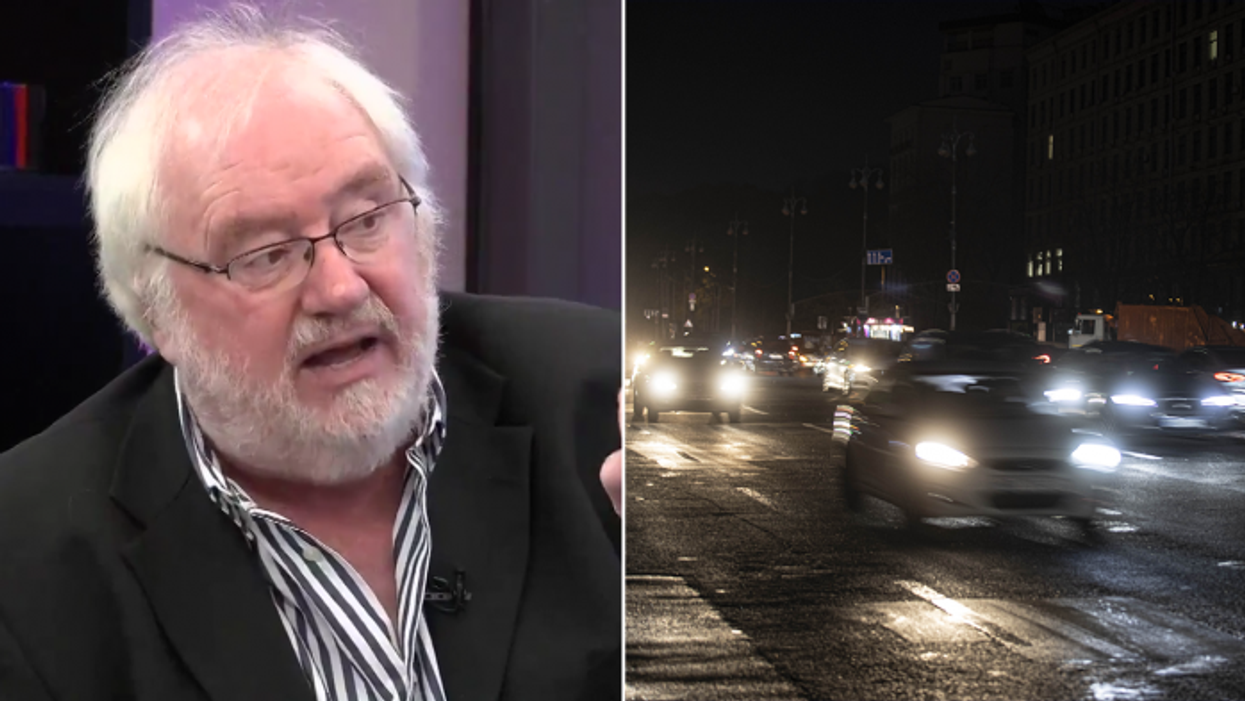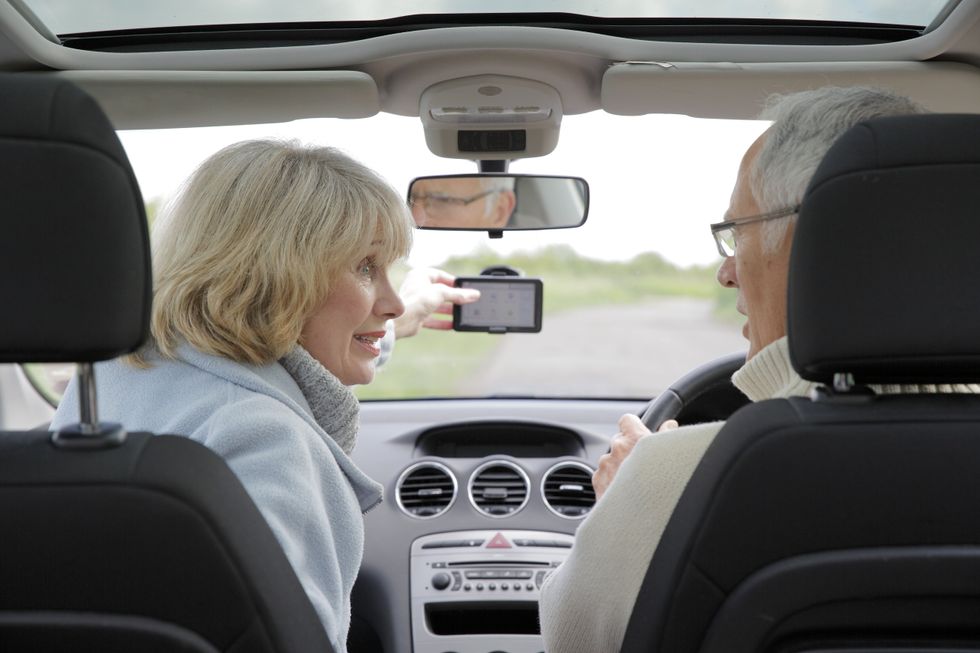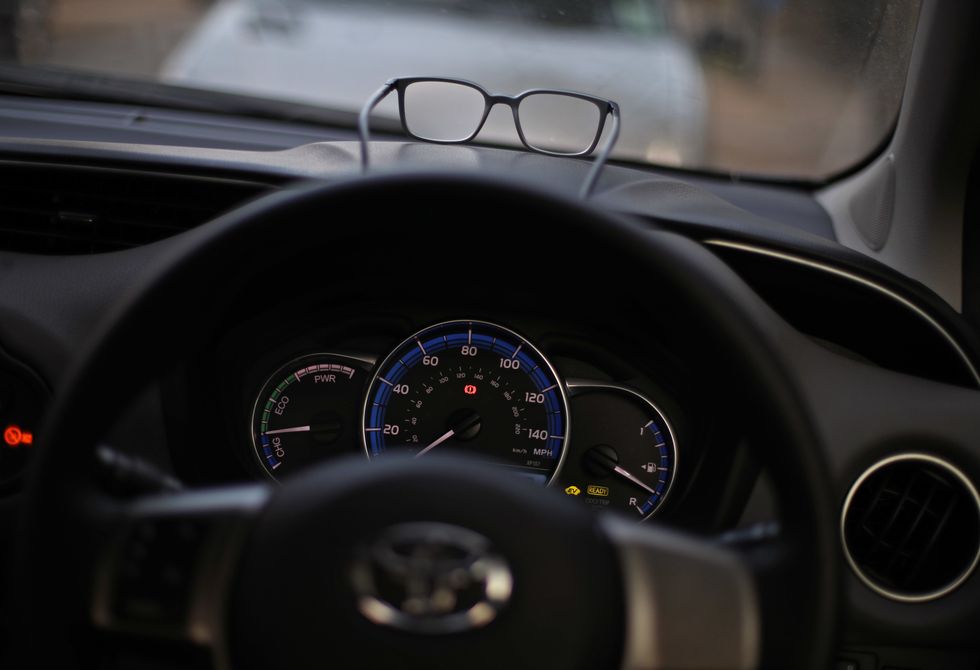Elderly drivers 'shouldn’t be written off the roads because of their age' amid calls for mandatory eye tests

The panel discusses the problems elderly people may face when driving in the dark
|GB NEWS

Older drivers must renew their licence every three years once they turn 70, not every 10 years like other age groups
Don't Miss
Most Read
Experts are warning older motorists to take care when driving to avoid any dangerous accidents as the number of elderly drivers continues to grow.
Data from the DVLA revealed that the number of licence holders in the UK over the age of 90 or above has doubled in 10 years to 153,000.
In response to research, a number of experts called for the introduction of mandatory eye tests for drivers once they reach an advanced age to ensure they can continue on the roads safely.
Motorists are not required to show evidence of regular eye tests once they reach 70, although they must start renewing their licence every three years rather than every 10 years for other age groups.

Experts have stated that drivers should be able to stay on the road as long as they are fit to do so
|GETTY
Generally, elderly drivers are more likely to suffer from eyesight issues and other medical conditions, requiring some people to inform the DVLA about their ability to drive.
This includes some common issues including diabetes and sleep apnoea. All drivers are required to report “notifiable” conditions, especially if they have worsened since they last renewed their licence.
Craig Delahaye, associate director of legal operations at National Accident Helpline, warned that drivers could face a hefty fine worth £1,000 if they neglect to inform the DVLA about their medical conditions.
Speaking to GB News, he added: “It could also potentially invalidate their insurance as insurers could regard failure to disclose a medical condition as non-disclosure and refuse to pay out on a claim, if an accident occurs.
“While each situation is a case-by-case basis, there are a few precautions that drivers can take to reduce the risk of being involved in an accident.”
Last year, a YouGov survey suggested that 65 per cent of British adults supported the idea of drivers over 70 having to retake a practical test every three years to keep their licence.
Only 27 per cent of people said they strongly or somewhat opposed the proposals, with a further seven per cent saying they were unsure.
Craig Delahaye called on road users to plan their trips wisely, particularly if they will be on the road for long durations including during darker hours.
He added: “Ultimately, drivers shouldn’t be written off the roads just because of their age, but they should ensure that they are in fit shape to drive confidently and safely and are always discussing any impairments with their GP to ensure their own safety as well as the safety of those around them.”
Compromised night vision, fatigue and the glare of flashlights could seriously impact drivers who have sight issues as it can compromise their depth perception and peripheral eyesight.
Aside from beating traffic and congestion, drivers who may have problems with their vision are advised to avoid peak rush hour and late nights.
The expert continued, saying: “It’s also important to avoid having distractions in the car, such as children, pets and having the radio on too loud.
LATEST DEVELOPMENTS:
- Apple set to launch new electric car in 2028 that could rival Tesla after ditching self-driving plans
- Drivers warned of the most expensive UK airport car parking prices as Britons risk being ripped off
- Elderly drivers could 'lose their licences' without urgent eyesight law changes and new medical rules

Some experts have called for drivers to undergo mandatory eyesight tests
|PA
“Even having mobile phones on loud could provide a distraction so it’s important to consider this for both drivers and passengers. Planning journeys is also vital, inclusive of rest breaks for those longer trips.”
As with any journey, drivers should always ensure their vehicle is roadworthy and safe to drive, especially when travelling longer distances.







